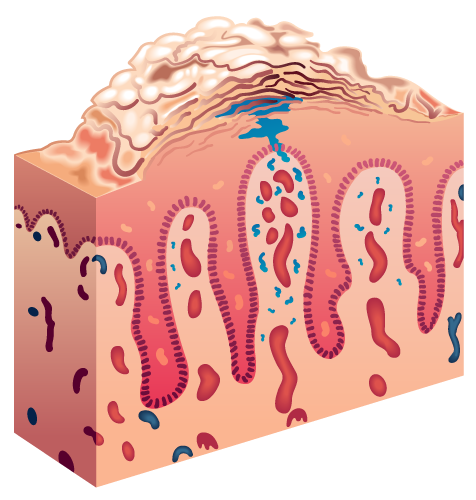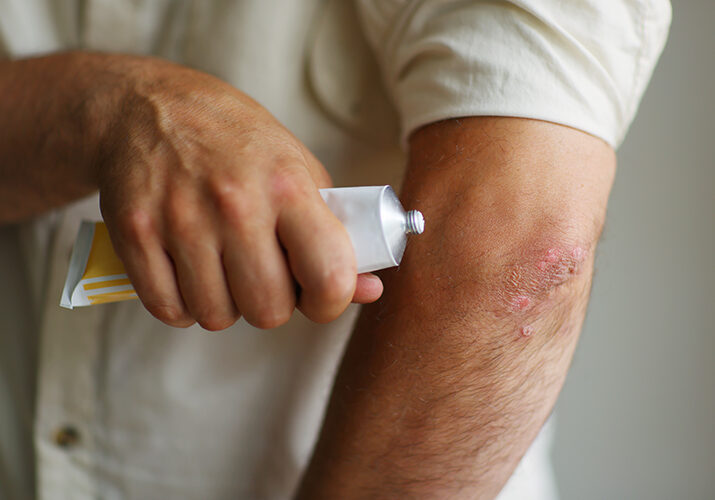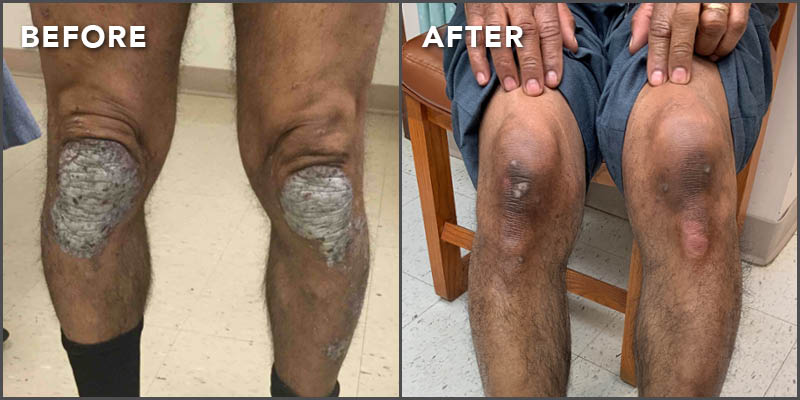Psoriasis

Increased number of cells
Inflammatory Response
Plaques
Surface Scales
ABOUT PSORIASIS
Psoriasis is a chronic auto-inflammatory disorder that causes your skin cells to multiply too quickly. As a result, your skin becomes itchy, flaky, and inflamed as this sped-up growth cycle interferes with the typical skin turnover process. Psoriasis cannot be spread from person-to-person contact. It occurs as a result of an over-activation of your immune system, resulting in the body attacking normal tissue.
SYMPTOMS
Common symptoms of psoriasis include:
- Itchy patches of thick skin
- Scaly, silvery, and flaky skin
- Patches typically present themselves on your face, neck, scalp, elbows, knees, palms, and feet. However, plaques can grow anywhere on your body.
Types of Psoriasis
The most commonly occurring type of psoriasis results in inflamed, red skin with white scales.
This type of psoriasis appears on your armpits, groin, genital skin folds, and under the breasts. It is characterized by red patches of skin that are smooth but without scales or flaky.
An uncommon type, this results in pustules surrounded by red, inflamed skin. It is often accompanied by fever, chills, and nausea and requires immediate medical attention.
A serious but uncommon type of psoriasis that affects a large part of your body. This results in severe itching and fiery skin. This severe type of psoriasis results in fluid loss, and changes to your heart rate and body temperature.
It commonly occurs in people who have psoriatic arthritis. Results in tender nails that are yellow-brown in color with a chalk-like material under your nail beds.
People with psoriatic arthritis have psoriasis along with arthritis or inflammation of the joints.
Psoriasis Treatment
A dermatologist can accurately diagnose your condition and recommend a treatment that's right for you. Treatment depends on several factors, including the type of psoriasis, the amount of skin affected, the location of the psoriatic patches, the severity of the disease.
Common treatment options for psoriasis include:
- Topical therapies: Includes creams, ointments, and lotions used to soothe the symptoms of psoriasis, including flaky skin.
- Phototherapy. Involves exposing of UV light on your skin to slow down the skin cell growth process.
- Systemic Medications/Biologics. These medications help decrease inflammation for people with moderate to severe psoriasis.

PSORIASIS RESULTS
Use the slider to see full acne treatment results. Want to see more? Click the link below.

Actual results of Core Dermatology & Joshua Kentosh, DO FAAD
